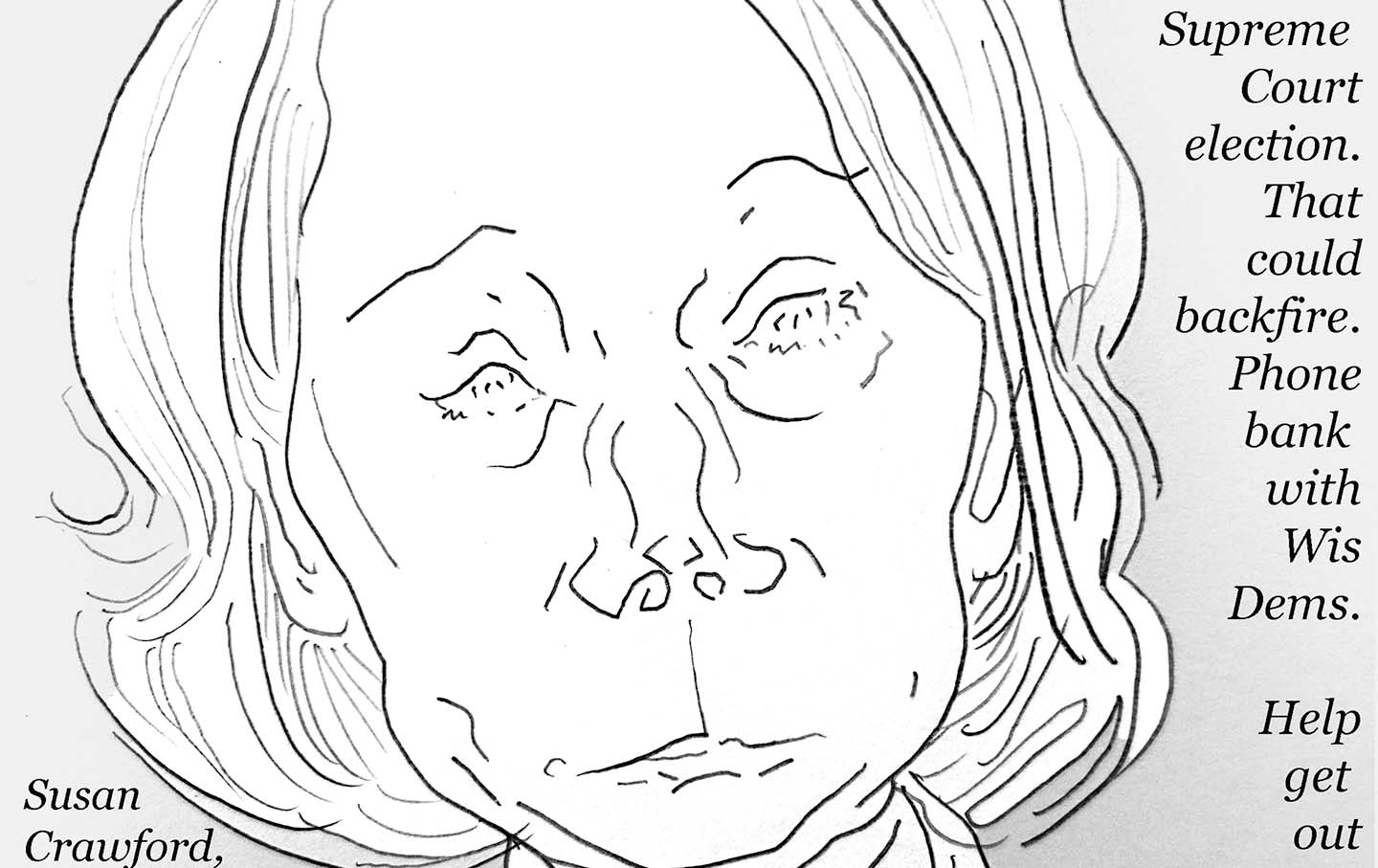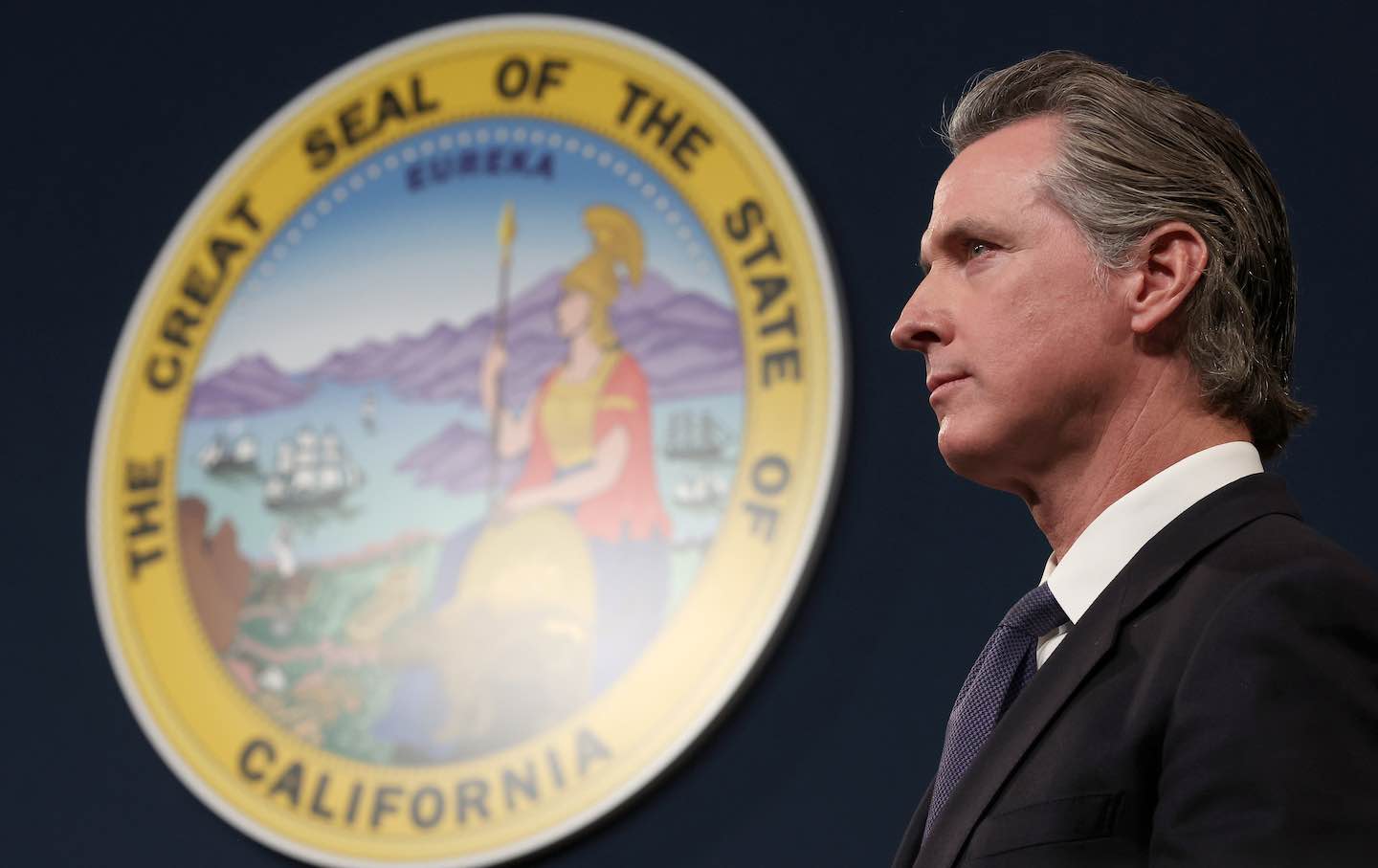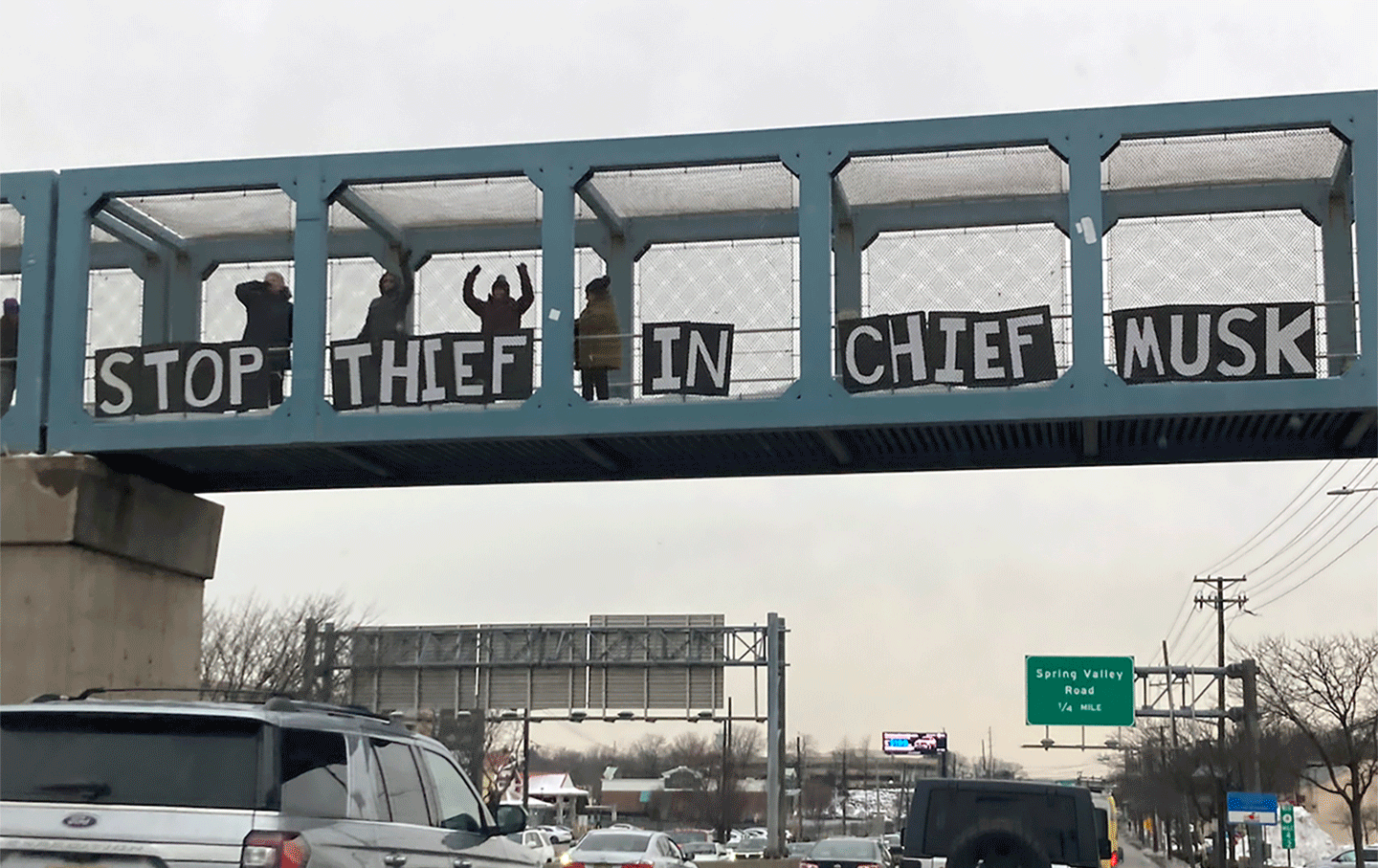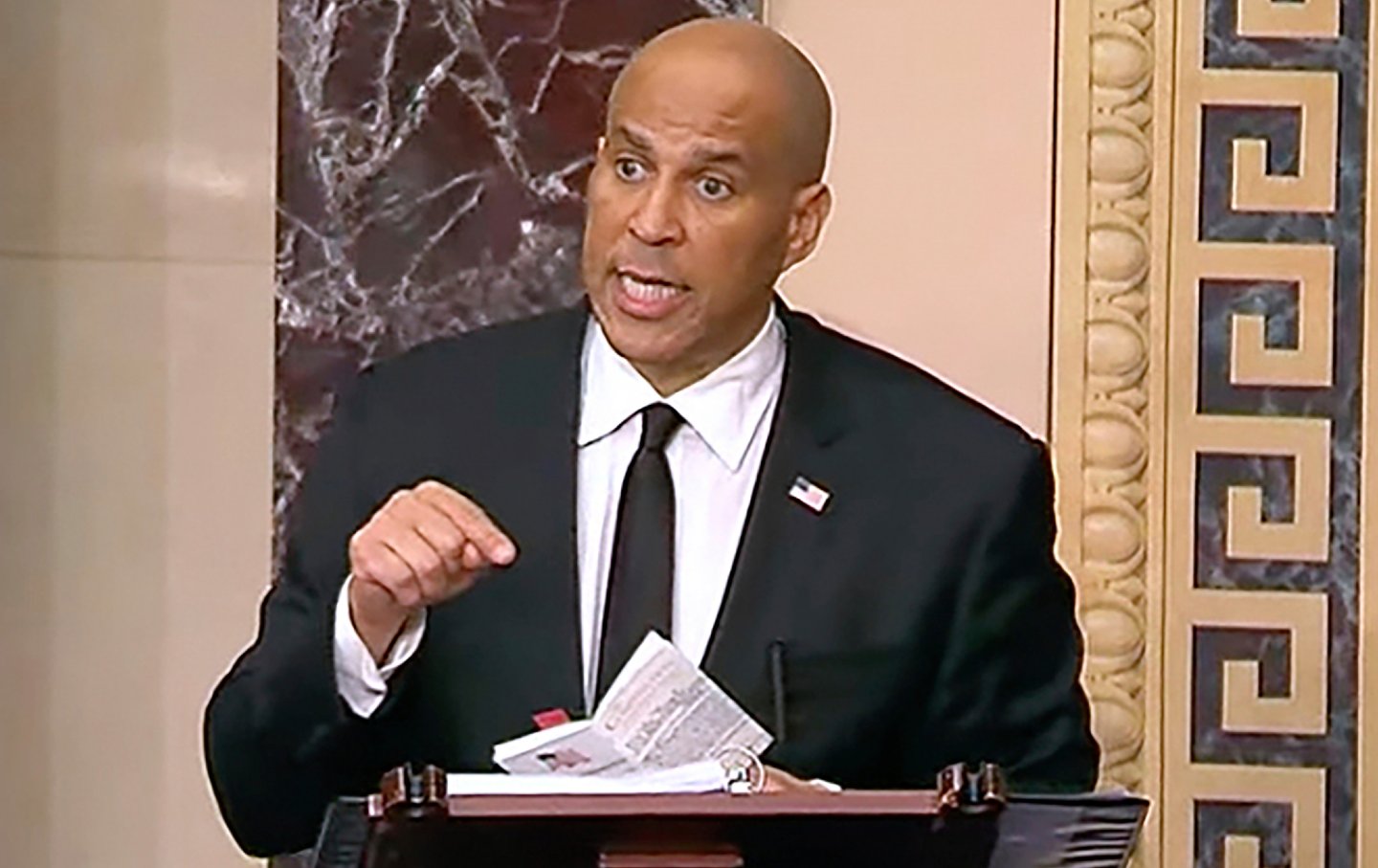How Wisconsin Democrats Easily Defeated 2 Conservative Constitutional Amendments
The August partisan primary marked the second time since 1996 that voters in the state rejected a constitutional amendment.
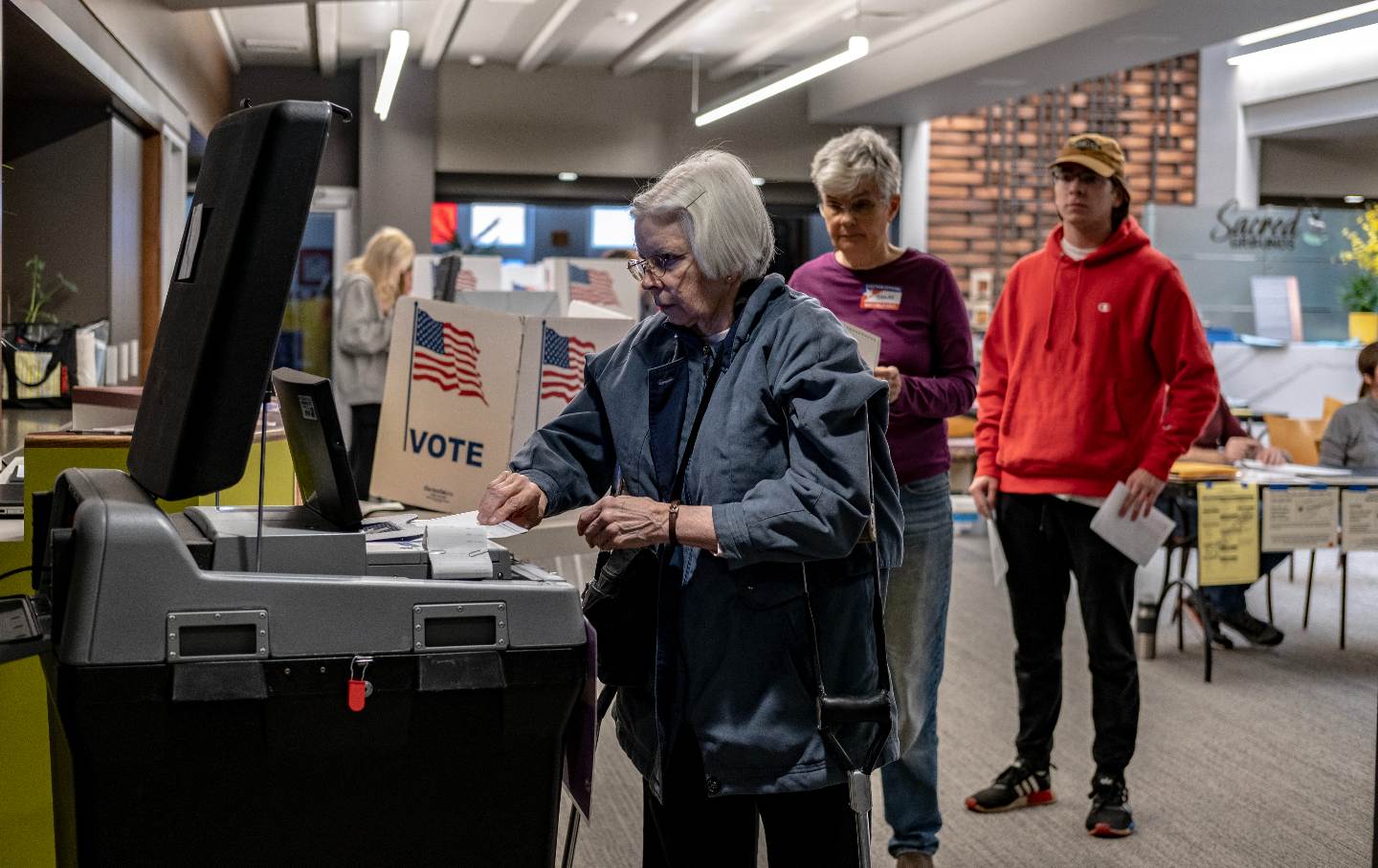
Voters submit their ballots in Madison, Wisconsin.
(Jim Vondruska / Getty)
Wisconsin Democrats initially thought that defeating two constitutional amendments during the August partisan primary would be a long shot. In June, internal polling showed that both amendments were on track to pass—one by double digits. “It was not at all obvious that there was a path to defeat these amendments,” Ben Wikler, chair of the Democratic Party of Wisconsin, told The Nation.
Instead, they got a landslide. The amendments, which would have required the governor to receive legislative approval before spending federal funds, were defeated by 57-43 percent and 58-42 percent margins. It was only the second time since 1996 that voters had rejected a constitutional amendment in the state.
The amendments’ mostly conservative supporters argued that they would give necessary oversight over how Wisconsin spends federal funds. Opponents, meanwhile, said the amendments would bog down the governor’s ability to react nimbly to emergencies, particularly given the state’s endemic legislative gridlock.
In the spring, there was less of a concerted effort to rally against two other constitutional amendments that banned the use of third-party funding in election administration, according to Wikler. The party ultimately viewed those amendments as less consequential for Wisconsin’s future. “We didn’t lean into the fight in the same way, and they sailed through as per usual,” Wikler said.
But Wikler said there was an immediate sense that the two August amendments would “undermine our system of checks and balances” and prevent governors of either party from taking action in an emergency. The stakes were “vastly higher,” he said.
“It felt worth fighting, even if it was a long shot to win.”
Mobilizing against the amendments started as soon as the Democratic Party of Wisconsin voted to formally oppose them in June, Wikler said.
From there, the Democratic Party of Wisconsin spent $250,000 on broadcast and physical advertising; organizers with the Wisconsin Votes NO coalition, led by environmental group Wisconsin Conservation Voters, spent $1.9 million on mailers, digital advertising and field organizing. The effect of that organizing, Wikler said, was that Democrats not only defeated the amendments, but increased primary turnout.
“The turnout level was the highest that we’ve seen in an August primary in Wisconsin in a presidential election year for 60 years, since 1964,” Wikler said. “It wasn’t that people were coming out in droves on both sides of [the amendments]. This was a 15 point victory.”
Wikler said the political dynamics surrounding the amendments helped Democrats. Wisconsin’s state legislature is currently under Republican control, but Wisconsin’s governor, Tony Evers, is a Democrat. As the two parties have clashed, the statehouse has experienced severe gridlock. During the onset of the Covid-19 pandemic, the state had the nation’s least active legislature.
During that time, Evers spent or obligated 94 percent of the $5.1 billion federal aid he had control over, according to political outlet WisPolitics.
When he knocked on voters’ doors, Wikler said, he was sure to connect the amendments to Wisconsin’s political players and their intentions—answering who was supporting the amendments, and why. Once he explained that, in his view, the amendments are pushed by Republicans angry over Evers’s spending of federal Covid-19 relief funds, he said voters connected the dots: “There was like a light bulb going on for voters that had been genuinely confused about what these amendments were about.”
Voters will decide the fate of more than 140 ballot measures across 41 states this November. In 10 of those states, voters will cast decisive votes on abortion rights.
When asked what advice he would give other state Democratic Party leaders facing conservative-backed constitutional amendments, Wikler says that informing voters proactively over a variety of mediums is key.
“Not only explaining the effects but explaining the intent is important, and using a full-spectrum organizing strategy—the way you would to win an electoral contest,” Wikler said. Localizing an issue helps: Municipal officials brought the messaging to voters, Wikler said, by highlighting how gridlocked federal pandemic funds could have forced cuts for caregivers, first responders, K-12 schools and small businesses.
Popular
“swipe left below to view more authors”Swipe →And Democratic Party leaders shouldn’t assume their base knows what the amendments on their ballots do, Wikler said. “For constitutional amendments and ballot initiatives, you have to start with the recognition that most Democrats don’t know what’s happening.”
Given that primary and other non-November elections have much lower turnout, Wikler said votes should not be taken for granted: Democratic leadership should try to gain moderate and conservative votes, he said, while also knowing they still need to inform their base. Those most motivated to defeat or support an amendment will be most likely to vote, Wikler adds.
Even with the recent defeat, the constitutional amendments are expected to keep coming in Wisconsin. Robin Vos, a Republican and Wisconsin’s Assembly speaker, told local newspaper The Capital Times that Wisconsin Republicans should “double down” on putting forward constitutional amendments.
But in light of voters’ turnout in August, Wikler says Republicans’ doing so could ultimately invigorate future Democratic victories.
“One of the lessons from this: if Republicans really want to do something bad by amending the Constitution, it can actually blow back and cost them not only a victory of their constitutional amendments, but victories of other races as well,” Wikler said. “By promising a continued flow of these kinds of bad-faith attacks, Robin Vos is actually ramping up Democratic enthusiasm to remove his speakership.”

